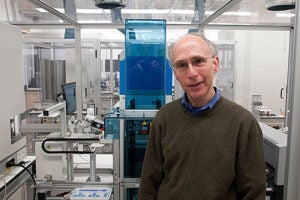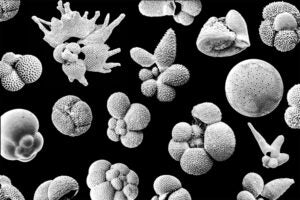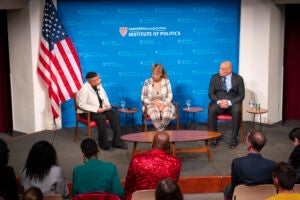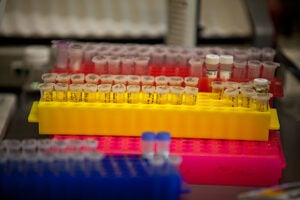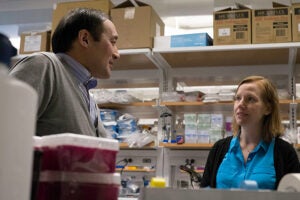Tag: HSCI
-
Nation & World
Breakthrough within reach for diabetes scientist and patients nearest to his heart
One hundred years after the discovery of insulin, replacement therapy represents “a new kind of medicine,” says Douglas Melton, co-director of Harvard Stem Cell Institute.
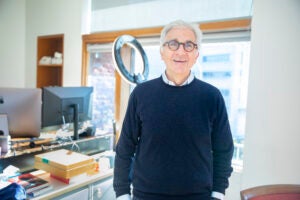
-
Nation & World
A solid vaccine for liquid tumors
A new study presents an alternative treatment for acute myeloid leukemia (AML) that has the potential to eliminate AML cells completely.
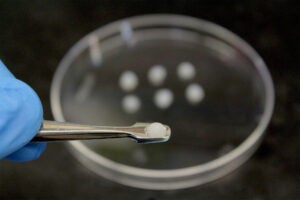
-
Nation & World
Professor Paola Arlotta awarded George Ledlie Prize
Developmental neurobiologist Paola Arlotta has been awarded the George Ledlie Prize by the President and Fellows of Harvard College.

-
Nation & World
Understanding how the intestine replaces and repairs itself
When working stem cells within the intestine are depleted, some types of mature cells can transform themselves into stem cells, replenishing the population.
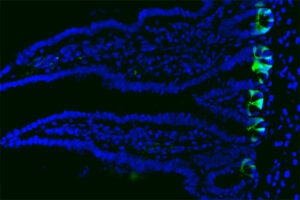
-
Nation & World
Steven Hyman awarded 2016 Sarnat Prize
The National Institute of Mental Health has awarded Professor Steven Hyman ’80 the 2016 Sarnat Prize for his work on treating and understanding psychiatric disorders as biological diseases.

-
Nation & World
Making bone marrow transplants safer
Harvard Stem Cell Institute scientists have taken the first steps toward developing a treatment that would make bone marrow-blood stem cell transplantation safer.
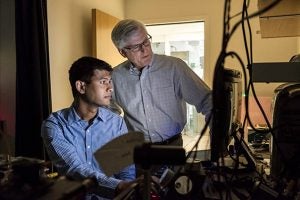
-
Nation & World
Alzheimer’s insights in single cells
A study of plaque production at single-cell level holds promise to help improve Alzheimer’s treatment.
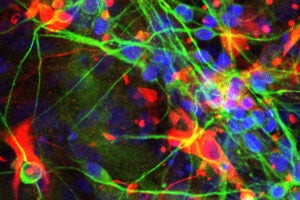
-
Nation & World
Potential diabetes treatment advances
Researchers at MIT’s David H. Koch Institute for Integrative Cancer Research, in collaboration with scientists at the Harvard Stem Cell Institute and several other institutions, have developed an implantable device that in mice shielded insulin-producing beta cells from immune system attack for six months — a substantial proportion of life span.
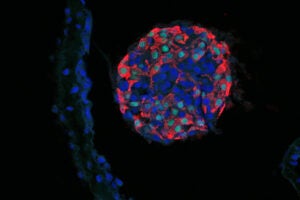
-
Nation & World
Researchers help cells forget who they are
Scientists identify a molecular key that helps cells maintain identity and prevents the conversion of adult cells into induced pluripotent stem cells — a process that would require a cell to “forget” its identity before assuming a new one.
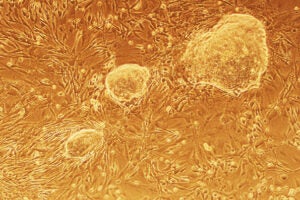
-
Nation & World
New hope in old viruses
Harvard Stem Cell Institute researchers at Massachusetts Eye and Ear have reconstructed an ancient virus that is highly effective at delivering gene therapies to the liver, muscle, and retina.
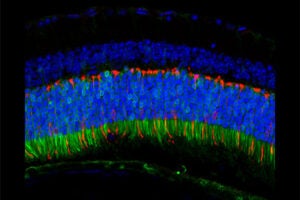
-
Nation & World
Zebrafish reveal drugs that may improve bone marrow transplant
Using large-scale zebrafish drug-screening models, Harvard Stem Cell Institute researchers at Boston Children’s Hospital have identified a potent group of chemicals that helps bone marrow transplants engraft, or “take.”
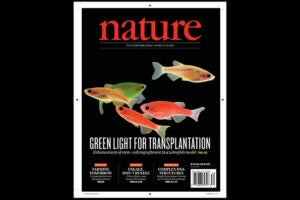
-
Nation & World
Possible progress against Parkinson’s
Harvard Stem Cell Institute researchers at McLean Hospital have taken what they describe as an important step toward using the implantation of stem cell-generated neurons as a treatment for Parkinson’s disease.
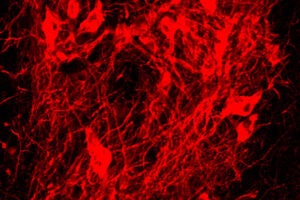
-
Nation & World
A new stem cell advance
Collaborating with scientists elsewhere, Harvard Stem Cell Institute researchers have devised two methods for using stem cells to generate the type of neurons that help regulate behavioral and basic physiological functions in the human body, such as obesity and hypertension, sleep, mood, and some social disorders.
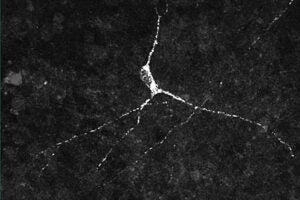
-
Nation & World
A pill to shed fat?
Harvard Stem Cell Institute researchers have taken what they describe as “the first step toward a pill that can replace the treadmill” for the control of obesity.
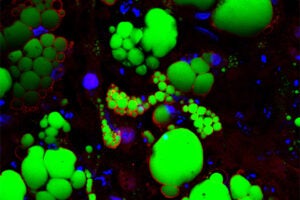
-
Nation & World
The cellular origin of fibrosis
Harvard Stem Cell Institute scientists at Brigham and Women’s Hospital have found the cellular origin of the tissue scarring caused by organ damage associated with diabetes, lung disease, high blood pressure, kidney disease, and other conditions.
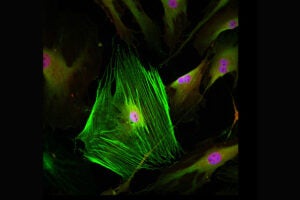
-
Nation & World
Reprogramming cells, long term
Harvard Stem Cell Institute researchers have demonstrated that adult cells, reprogrammed into another cell type in a living animal, can remain functional over a long period. The work is an important advance in the effort to develop cell-based therapies for tissue repair, and specifically in the effort to develop improved treatment for diabetes.
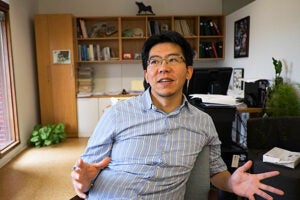
-
Nation & World
Progress against ALS
Studies begun by Harvard Stem Cell Institute scientists eight years ago have led to a report that may be a major step in developing treatments for amyotrophic lateral sclerosis, or Lou Gehrig’s disease.
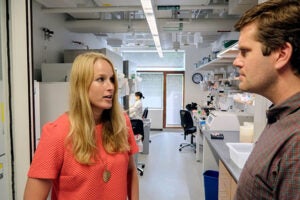
-
Nation & World
A shot against heart attacks?
Harvard Stem Cell Institute scientists collaborating with researchers at the University of Pennsylvania have developed a “genome-editing” approach for permanently reducing cholesterol levels in mice through a single injection, a development with the potential to reduce the risk of heart attacks in humans by 40 to 90 percent.

-
Nation & World
A decade of breakthroughs
The Harvard Stem Cell Institute is now 10 years old. What began as an idea embracing cross-disciplinary research quickly became a generator of scientific discoveries.
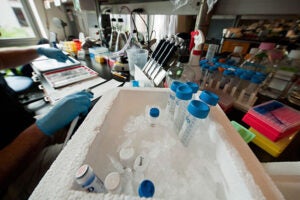
-
Nation & World
Turning science on its head
Myelin, the electrical insulating material in the body long known to be essential for the fast transmission of impulses along the axons of nerve cells, is not as ubiquitous as thought, according to new work led by Professor Paola Arlotta.
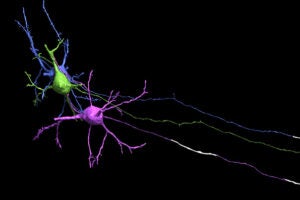
-
Nation & World
Quality control
A Harvard research team led by Kevin Kit Parker, a Harvard Stem Cell Institute principal faculty member, has identified a set of 64 crucial parameters by which to judge stem cell-derived cardiac myocytes, making it possible for scientists and pharmaceutical companies to quantitatively judge and compare the value of stem cells.
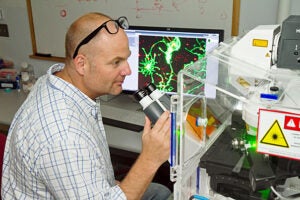
-
Nation & World
Alzheimer’s in a dish
Harvard stem cell scientists have successfully converted skins cells from patients with early onset Alzheimer’s into the types of neurons affected by the disease, making it possible for the first time to study this leading form of dementia in living human cells.

-
Nation & World
‘Junk?’ Not so fast
Research by Harvard Stem Cell Institute scientists shows that much lincRNA, which had been generally believed useless, plays an important role in the genome.
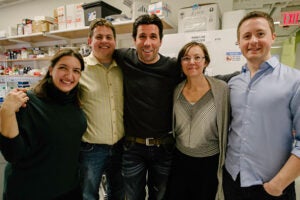
-
Nation & World
Clues on generating muscles
Harvard stem cell scientists have discovered that the same chemicals that stimulate muscle development in zebrafish can be used to differentiate human stem cells into muscle cells in the laboratory, which makes muscle cell therapy a more realistic clinical possibility.
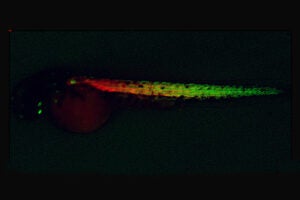
-
Nation & World
A cross-country collaboration
Amy Wagers and Emmanuelle Passegué have found that cancer stem cells actively remodel the environment of bone marrow, where blood cells are formed, so that it is hospitable only to diseased cells. This finding could influence the effectiveness of bone marrow transplants.
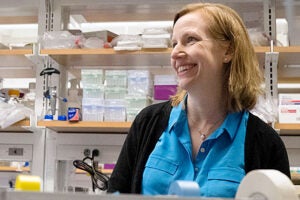
-
Nation & World
Developing cancer drugs
Harvard Stem Cell Institute researchers have identified in the most aggressive forms of cancer a gene known to regulate embryonic stem cell self-renewal, beginning a creative search for a drug that can block its activity.
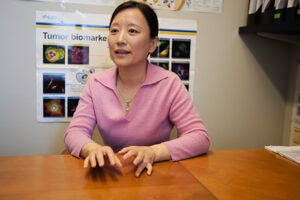
-
Nation & World
Potential diabetes breakthrough
Researchers at the Harvard Stem Cell Institute have discovered a hormone that holds promise for a dramatically more effective treatment of type 2 diabetes, a metabolic illness afflicting an estimated 26 million Americans.
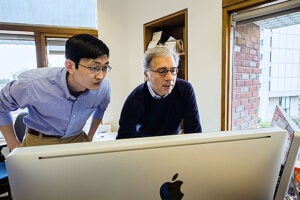
-
Nation & World
Big boost in drug discovery
Using a new, stem cell-based, drug-screening technology that could reinvent and greatly reduce the cost of developing pharmaceuticals, researchers at the Harvard Stem Cell Institute have found a compound that is more effective in protecting the neurons killed in amyotrophic lateral sclerosis than are two drugs that failed in human clinical trials.
